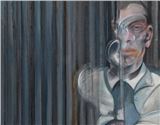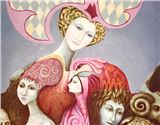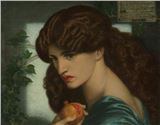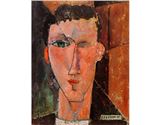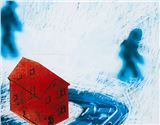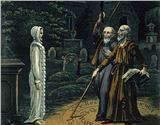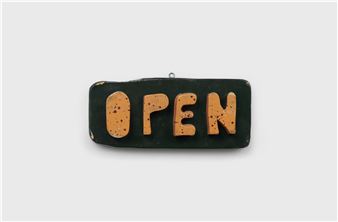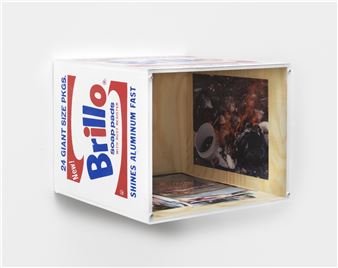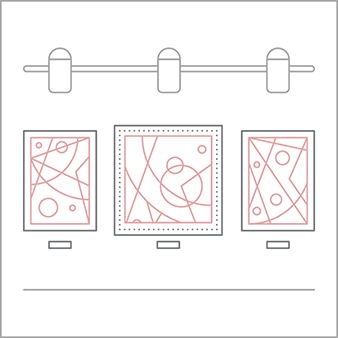Lutz Bacher: Burning the Days
Astrup Fearnley Museet and WIELS Brussels announce the first posthumous survey exhibition of American artist Lutz Bacher (1943вҖ“2019).
This landmark exhibition offers an expansive view of BacherвҖҷs provocative, genre-defying oeuvre, spanning five decades of uncompromising art with an unsettling mix of affect and sentiment, humor, pop-cultural touchstones, and unflinching examinations of sexuality, violence, political paranoia, and cosmic metaphysics.
Lutz Bacher lived in Berkeley, California and later New York City. Early in her artistic life, she adopted a fictional, masculine-sounding pseudonym, insisting on an open-ended understanding of authorship and an identity that purposefully resisted categorization.
In the mid-1970s Bacher began making photographs. She took her own pictures, as well as transformed found photographs, drawing resonance out of them by distorting them, editing and combining them, or uncovering half-hidden details about them. Her method depended on chance, discovering what the world brought her by accident, an openness that later grew to include sculpture, video, and eventually museum sized installations. She promoted the idea that artists can reckon with art and life through what the world has already made, permitting it to show her many sudden intrusions of beauty, comedy, or violence. This approach to art embraced the art-historical tradition of the вҖҳreadymadeвҖҷ while also muddying its logic, using a wide range of found materialsвҖ”texts, archival fragments, music, and objectsвҖ”in wild relation.
As an artist, Lutz Bacher spent her life grappling with the political and psychic undertow of the last American century. A number of the subjects in Burning the Days are iconic American symbols: presidents, bison, widows, weapons, and would be assassins. Her art was animated from this violent outside, but much also emerged from questions inside, twinkling with a more intimate and existential registerвҖ”Who might Lutz Bacher be? What might she do as an artist? What might her art mean right now, or later?
The exhibition title, Burning the Days, is BacherвҖҷs own. ItвҖҷs the title she gave to an unfinished book that now exists as a binder in her archive. The book is a chronological compilation of the artistвҖҷs work from 2013 until nearly the day she died in 2019. The title cites the expression used by soldiers during the Vietnam War to describe time spent off duty but still deployed: вҖңburning the days.вҖқ The exhibition Lutz Bacher: Burning the Days, too, could be thought of as a draft, as much like the book itself, it remains unfinished or unfinishableвҖ”a recollection of the past as well as a language to come. Rather than following a chronological order, it unfolds through a series of associative encountersвҖ”reflecting BacherвҖҷs own attitude.
A comprehensive monograph will be published in 2026, featuring newly commissioned essays by art historian Kate Nesin, writer Emily LaBarge, and philosopher Juliane Rebentisch, alongside a curatorial foreword.
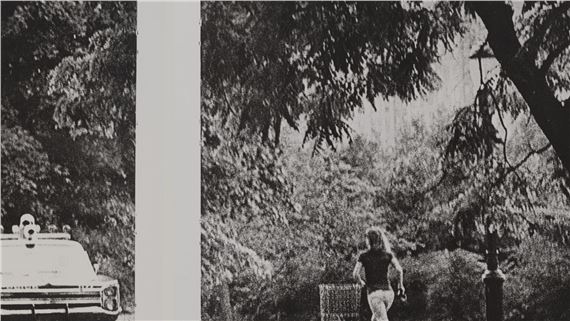
Recommended for you
Astrup Fearnley Museet and WIELS Brussels announce the first posthumous survey exhibition of American artist Lutz Bacher (1943вҖ“2019).
This landmark exhibition offers an expansive view of BacherвҖҷs provocative, genre-defying oeuvre, spanning five decades of uncompromising art with an unsettling mix of affect and sentiment, humor, pop-cultural touchstones, and unflinching examinations of sexuality, violence, political paranoia, and cosmic metaphysics.
Lutz Bacher lived in Berkeley, California and later New York City. Early in her artistic life, she adopted a fictional, masculine-sounding pseudonym, insisting on an open-ended understanding of authorship and an identity that purposefully resisted categorization.
In the mid-1970s Bacher began making photographs. She took her own pictures, as well as transformed found photographs, drawing resonance out of them by distorting them, editing and combining them, or uncovering half-hidden details about them. Her method depended on chance, discovering what the world brought her by accident, an openness that later grew to include sculpture, video, and eventually museum sized installations. She promoted the idea that artists can reckon with art and life through what the world has already made, permitting it to show her many sudden intrusions of beauty, comedy, or violence. This approach to art embraced the art-historical tradition of the вҖҳreadymadeвҖҷ while also muddying its logic, using a wide range of found materialsвҖ”texts, archival fragments, music, and objectsвҖ”in wild relation.
As an artist, Lutz Bacher spent her life grappling with the political and psychic undertow of the last American century. A number of the subjects in Burning the Days are iconic American symbols: presidents, bison, widows, weapons, and would be assassins. Her art was animated from this violent outside, but much also emerged from questions inside, twinkling with a more intimate and existential registerвҖ”Who might Lutz Bacher be? What might she do as an artist? What might her art mean right now, or later?
The exhibition title, Burning the Days, is BacherвҖҷs own. ItвҖҷs the title she gave to an unfinished book that now exists as a binder in her archive. The book is a chronological compilation of the artistвҖҷs work from 2013 until nearly the day she died in 2019. The title cites the expression used by soldiers during the Vietnam War to describe time spent off duty but still deployed: вҖңburning the days.вҖқ The exhibition Lutz Bacher: Burning the Days, too, could be thought of as a draft, as much like the book itself, it remains unfinished or unfinishableвҖ”a recollection of the past as well as a language to come. Rather than following a chronological order, it unfolds through a series of associative encountersвҖ”reflecting BacherвҖҷs own attitude.
A comprehensive monograph will be published in 2026, featuring newly commissioned essays by art historian Kate Nesin, writer Emily LaBarge, and philosopher Juliane Rebentisch, alongside a curatorial foreword.
Artists on show
Contact details

Related articles
Make way for new museums far and wide this fall. The Museum of West African Art will fully open in Benin City, Nigeria.
Astrup Fearnley Museet and WIELS Brussels announce the first posthumous survey exhibition of American artist Lutz Bacher (1943вҖ“2019).
Lutz Bacher shook great works out of her sleeve with an effortlessness impossible to fake.
In 1976, when Lutz Bacher was asked to give an interview about her art, she opted to talk about Lee Harvey Oswald instead. Naturally, the interviewer asked why, asked whether assassinations fascinated the artist.

 ARTISTS
ARTISTS
